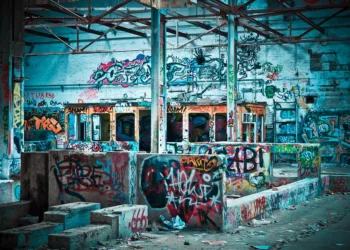Quick Links
Bastions in Dungeons & Dragons serve as a central hub for players, allowing them to create items, assemble allies, and conduct various research activities. These structures can come under attack either through unexpected events or when the Dungeon Master decides it fits the storyline.
Players can collaborate to create a single, large bastion that acts as a stronghold for the entire group, safeguarding their combined efforts. Players have the freedom to design their own fortresses, incorporating several facilities that enhance defensive capabilities.
Why Create a Defensive Bastion?
If you examine the 2024 Dungeon Master’s Guide, you will notice that it’s quite challenging for a bastion to face an attack. For one, a bastion can only be assaulted if the players fail to give orders during a week, which is easily managed with spells like Sending, no matter where the characters are in the multiverse.
Additionally, even if a bastion does come under siege, the consequences aren’t terribly severe. If there are no defenders present, one facility may be damaged, but it will automatically repair itself after a week. Therefore, if players choose not to issue orders, they can skip taking turns for a month without experiencing significant repercussions.
Roleplay
Your bastion represents your character’s home. The non-playable characters (NPCs) you include may have strong connections to your character, influencing their personalities and motivations. For instance, if you designate one of your hirelings as your character’s spouse, you’d likely feel an urge to protect them, as an assault on the bastion could be dangerous.
House Rules
Your Dungeon Master might opt to use bastions differently than described in the 2024 Dungeon Master’s Guide, making attacks more frequent or disruptive than the standard rules suggest. They might also conduct attacks outside of random event tables, particularly when it suits the campaign narrative.
As the game progresses, particularly at higher levels, your party will likely gain notoriety as champions of the realm. Antagonists may frequently aim to undermine the party’s bastion, initiating attacks through various means.
Bastion Level Five
Upon reaching level five, you’ll need to determine which party member will primarily focus on constructing the defensive bastion. It doesn’t make much sense for multiple people to be building the same structure unless your DM states that defenders of one bastion cannot guard another.
You might feel inclined to surround your bastion with walls, but the cost of doing so is likely higher than simply replenishing any defenders who fall during combat. Considering the scale of bastions will increase as more players join, building walls might only be feasible at higher tiers of play.
Special Facilities
At level five, the barrack is your key facility and the sole method of recruiting defenders. Each time you take a bastion turn, you can enlist four new defenders, with the basic barrack having the capacity for twelve.
Surprisingly, you won’t need to provide food or pay for these defenders, as they automatically defend your bastion against threats. You always have the option to expand your barrack for 2,000 gold pieces, enabling it to accommodate up to 25 defenders.
It’s wise to establish two barracks at this level, ensuring that you start with eight defenders right off the bat. This strategy is particularly beneficial if your DM sets the campaign in a perilous terrain prone to frequent attacks.
You may consider adding an armory instead of a second barrack, but bear in mind that the armory’s purpose is to outfit your defenders, which does incur costs. This expenditure may not guarantee their survival during an attack, making it a less viable option compared to simply having more free defenders.
Bastion Level Nine
At this stage, you have the opportunity to introduce two additional special facilities, with several new options available. However, many of these facilities may not offer new defensive strategies, so adding more barracks could be optimal, allowing you to build a small army for protection.
While previously costly, you can now add both an armory and a smithy at level nine, making it easier to outfit your defenders. The smithy cuts the armory’s service costs in half, and it can even craft magical weapons for you at this level.
One notable option at this tier is the teleportation circle, which is beneficial since only one bastion requires this feature for everyone to utilize it. By focusing your bastion on defense, you can channel your party’s resources toward research or gaining riches, helping free up facility slots for others.
Bastion Level 13
When you reach this level, you’ll have a clear understanding of how effective your defensive investments have been. Depending on your findings, you can decide to increase those efforts or pivot elsewhere. Each time you level up, you have the option to modify one of your special facilities, allowing for experimentation with varied combinations.
The meditation chamber offers a unique way to bolster your defenses. By having your hirelings meditate there, you can roll twice during a bastion event and select the result that benefits you the most. While this doesn’t guarantee that your Dungeon Master won’t impose an attack, it’s valuable if you expect to spend time away from your bastion in upcoming adventures.
Although the menagerie allows for the recruitment of animals as defenders, they require upkeep and lack any special abilities compared to regular defenders, making them a less effective option in many cases.
Bastion Level 17
At this level, the special facilities unlocked will heavily depend on your character’s abilities. Some may require spellcasting capabilities or specific expertise. While there may not be many new defensive strategies available, the choices offered can be particularly engaging.
The guild hall is simple to qualify for as it only demands expertise in a single skill, which can be achieved through various feats. From the options presented in the 2024 Dungeon Master’s Guide, the Masons’ guild stands out, allowing you to construct walls around a bastion—yours or your party’s—without any cost.
For a more aggressive approach, the war room may be beneficial, especially if your character possesses a combat style or unarmored defense feature. This can enable you to command an army ready to engage in battles, unlike your free bastion defenders that may not be permitted to leave the bastion during gameplay.










